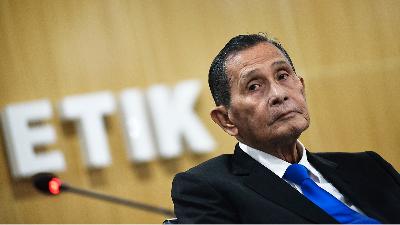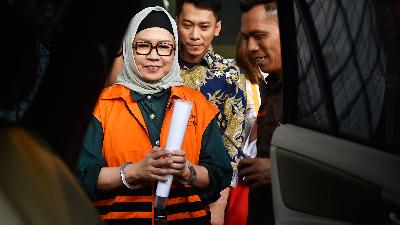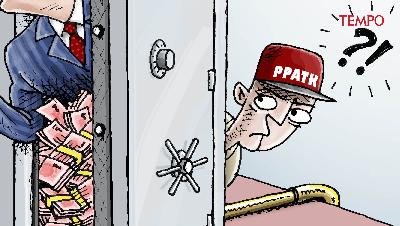The Meaning of Jokowi’s Impeachment Campaign
Monday, January 22, 2024
The campaign to impeach Jokowi is a narrative of resistance to an overwhelming power. Much needs to be done to make it happen.
arsip tempo : 174723323434.

THE suggestion to impeach President Joko Widodo will probably not result in the downfall of that former mayor of Solo. However, this campaign to end Jokowi’s term of office early can be seen as a form of public anger at the President’s excessive interference in the presidential election process.
Since two weeks ago, a group of senior figures calling themselves The Petition of 100 Upholders of the People’s Sovereignty is campaigning for Jokowi’s impeachment. They proposed that the House of Representatives (DPR) and the People’s Consultative Assembly (MPR) revoke the President’s powers on the pretext of preventing the political crimes of Jokowi and his family. In the midst of political power in the DPR that is divided among the alliances of general election coalitions, this proposal will be difficult to realize.
The procedure for impeaching a president is not as easy as it was before the 1945 Constitution was amended. The president and vice president can only be removed if they are proven to have violated the law by committing treason against the state, as well as committing corruption and other serious crimes. The president can also be taken out of office if they commit a disgraceful act. Procedurally, the DPR must also submit a proposal for dismissal to the Constitutional Court—the institution that recently changed the presidential election rules to enable Jokowi’s son, Gibran Rakabuming Raka, to become a vice-presidential candidate. As a result, the proposed petition faces a long road.
As this is the case, we can see that the petition from those senior figures is basically a move to oppose Jokowi’s political steps. Indeed, towards the end of his term, the President has made some moves to ensure that power shifts to Prabowo Subianto, his political opponent in the 2014 and 2019 presidential elections, who is now running for the presidency with his son. Many decisions made by the Jokowi administration are taken based on the electoral considerations for that presidential bid, not the interests of the general public.
The former governor of Jakarta has been hypocritical regarding the neutrality of government authorities. He conveyed in public the need for state officials and civil servants to have a neutral stance regarding the elections. However, in the field, the authorities have systematically acted on behalf of the Prabowo-Gibran ticket. Jokowi’s ministers have used state facilities that benefit the ticket’s political activities. Jokowi himself acts as if he is the head of the campaign team, which can be seen from his activities shadowing the campaign activities of Prabowo’s rival presidential candidates.
Moreover, the ethical standards being used in the election are very low. Many of Jokowi’s aides act arrogantly, only pursuing victory for the sake of holding on to their power. The strength of the military, police and government bureaucracy is being misused. So it is not surprising that a movement such as the Petition of 100 has emerged, which is campaigning for the president's impeachment. This group could be just the tip of the iceberg of a broader critical stance from the general public.
These power politics moves are reminiscent of past events. Up to 1998, the Suharto regime, that had ruled three decades, maintained power with three pillars of power: the army, the bureaucracy, and the Golkar Party. They acted arbitrarily, including showing off their arrogance. For example, the (Golkar) Yellowization of Central Java program, was carried out in part by painting the stone entrance to the Borobudur Temple area yellow. In just a short time, that seemingly solid power collapsed.
If abuse of power continues to be carried out to campaign for Jokowi’s cronies and children, it is not impossible that history will repeat itself. A rule that seemed strong was shunned by an angry public.











